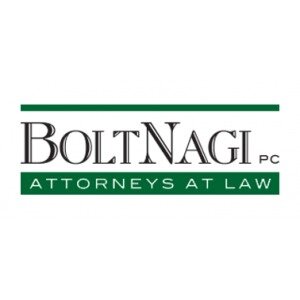Best Nonprofit & Charitable Organizations Lawyers in British Virgin Islands
Share your needs with us, get contacted by law firms.
Free. Takes 2 min.
Or refine your search by selecting a city:
List of the best lawyers in British Virgin Islands
About Nonprofit & Charitable Organizations Law in British Virgin Islands
The British Virgin Islands (BVI) is a prominent jurisdiction for the establishment of nonprofit and charitable organizations. These entities are often set up to achieve various charitable, educational, religious, scientific, or community advancement purposes. The legal framework in the BVI provides an avenue for international and local persons and entities to establish these organizations under a regulated and recognized system. Nonprofits in BVI can be structured as companies limited by guarantee, trusts, or unincorporated associations, and they benefit from various exemptions and privileges concerning taxation and governance. However, they are subject to compliance obligations to ensure transparency and accountability.
Why You May Need a Lawyer
There are several reasons why individuals and entities may seek legal advice when dealing with nonprofit and charitable organizations in the BVI:
- Formation and Structuring: Legal assistance can help in selecting the appropriate legal structure and ensuring compliance with local laws and international standards.
- Compliance and Reporting: Ensuring ongoing compliance with regulatory requirements can be complex, requiring specialist legal advice.
- Taxation and Exemptions: Navigating tax exemptions and liabilities, which can vary based on the structure and activities of the organization.
- Asset Management: Legal expertise is necessary for managing and protecting assets, especially in the context of charitable trusts.
- Dispute Resolution: Addressing any disputes that may arise within the organization or with external parties.
Local Laws Overview
The key aspects of local laws relevant to nonprofit and charitable organizations in the British Virgin Islands include:
- Non-Profit Organisations Act: This Act provides the regulatory framework for nonprofit organizations, detailing registration requirements, operational guidelines, and the necessity for financial transparency.
- Companies Act: Provides the legal foundation for the creation of companies limited by guarantee, commonly used for setting up nonprofits.
- Trusts Act: Governs the establishment and management of charitable trusts, another popular structure for philanthropic activities.
- Charities Exemption: Registered charities may qualify for exemptions from certain taxes, subject to compliance with relevant conditions.
- Anti-Money Laundering Regulations: Nonprofits must also adhere to anti-money laundering laws to prevent misuse of funds for illicit activities.
Frequently Asked Questions
What types of nonprofit entities can be established in the BVI?
In the BVI, nonprofits can be structured as companies limited by guarantee, trusts, or unincorporated associations.
What is the process for registering a nonprofit in the BVI?
Registration involves submitting the appropriate application and documentation to the relevant authorities, detailing the organizational structure and purpose. Legal assistance is often recommended to navigate the registration process smoothly.
Are nonprofits in the BVI required to pay taxes?
Registered charities may be eligible for exemptions from certain taxes, although they must comply with specific criteria and reporting requirements to maintain tax-exempt status.
How does the BVI regulate nonprofit organizations?
The Non-Profit Organisations Act outlines registration requirements, governance standards, and financial reporting obligations necessary for maintaining good standing.
What are the compliance requirements for nonprofit organizations in the BVI?
Compliance requirements typically include maintaining accurate records, submitting annual reports, and adhering to anti-money laundering regulations.
Can nonprofits in the BVI receive international donations?
Yes, nonprofits in the BVI can receive international donations; however, they must ensure compliance with both local and international regulatory standards.
What happens if a nonprofit fails to meet its compliance obligations?
Failing to meet compliance obligations can result in penalties, loss of tax-exempt status, or even dissolution of the organization.
Are there any benefits to establishing a nonprofit in the BVI?
The BVI offers a robust legal framework, tax benefits, and a stable political environment, making it an attractive jurisdiction for establishing nonprofit entities.
How can legal counsel assist with disputes within a nonprofit organization?
Legal counsel can help mediate disputes, ensure compliance with the organization's bylaws, and represent the organization in legal proceedings if necessary.
What is the role of the BVI Financial Services Commission regarding nonprofits?
The BVI Financial Services Commission oversees the registration and compliance of nonprofit organizations, ensuring they adhere to local laws and regulations.
Additional Resources
For further assistance, consider reaching out to the following resources in the British Virgin Islands:
- BVI Financial Services Commission: Provides guidelines and resources for establishing and managing nonprofits.
- Local Law Firms Specializing in Nonprofits: Offer legal expertise and practical advice tailored to the needs of nonprofit organizations.
- Chambers of Commerce: May provide networking opportunities and resources for nonprofit organizations.
- Government Publications: Frequently updated guidelines and legislative documents available from governmental bodies can offer insights into nonprofit regulations.
Next Steps
If you require legal assistance for a nonprofit or charitable organization in the British Virgin Islands, consider the following steps:
- Research and contact experienced lawyers or law firms specializing in nonprofit and charitable organizations in the BVI.
- Gather all relevant documents and information about your organization to facilitate the legal consultation process.
- Schedule a consultation to discuss your needs, whether setting up a new nonprofit, ensuring compliance, or resolving any disputes.
- Consider joining local nonprofit networks or associations to stay informed about best practices and legal updates in the BVI.
Lawzana helps you find the best lawyers and law firms in British Virgin Islands through a curated and pre-screened list of qualified legal professionals. Our platform offers rankings and detailed profiles of attorneys and law firms, allowing you to compare based on practice areas, including Nonprofit & Charitable Organizations, experience, and client feedback.
Each profile includes a description of the firm's areas of practice, client reviews, team members and partners, year of establishment, spoken languages, office locations, contact information, social media presence, and any published articles or resources. Most firms on our platform speak English and are experienced in both local and international legal matters.
Get a quote from top-rated law firms in British Virgin Islands — quickly, securely, and without unnecessary hassle.
Disclaimer:
The information provided on this page is for general informational purposes only and does not constitute legal advice. While we strive to ensure the accuracy and relevance of the content, legal information may change over time, and interpretations of the law can vary. You should always consult with a qualified legal professional for advice specific to your situation.
We disclaim all liability for actions taken or not taken based on the content of this page. If you believe any information is incorrect or outdated, please contact us, and we will review and update it where appropriate.
Browse nonprofit & charitable organizations law firms by city in British Virgin Islands
Refine your search by selecting a city.














